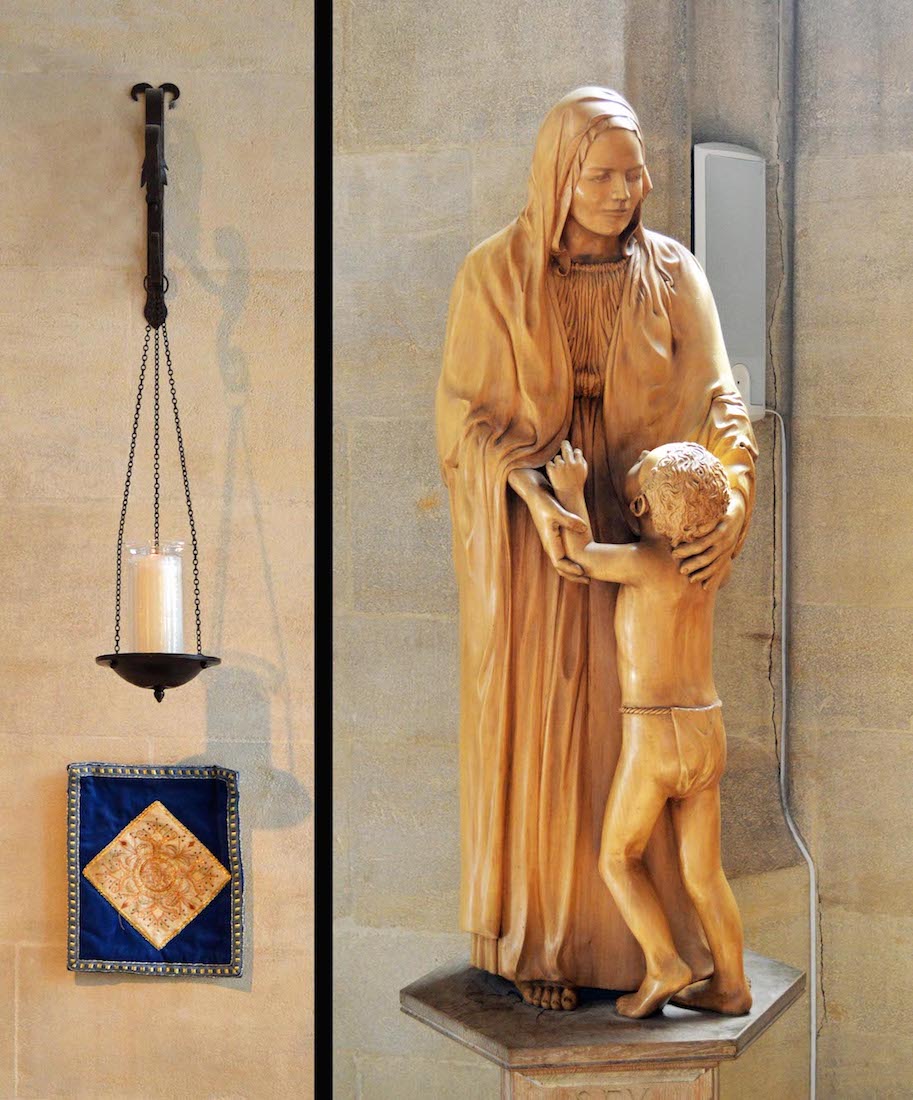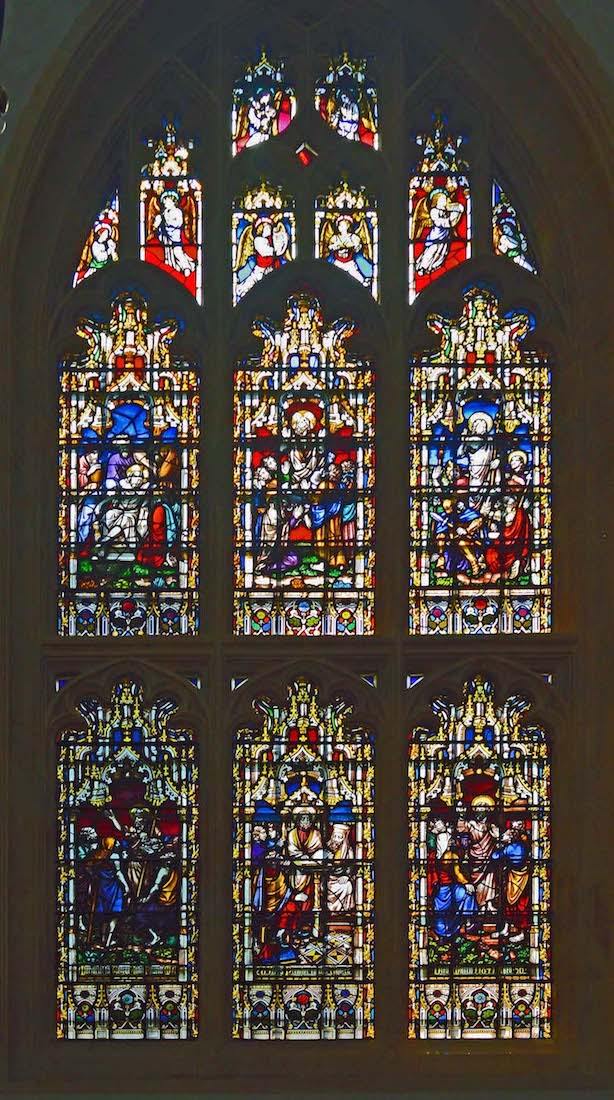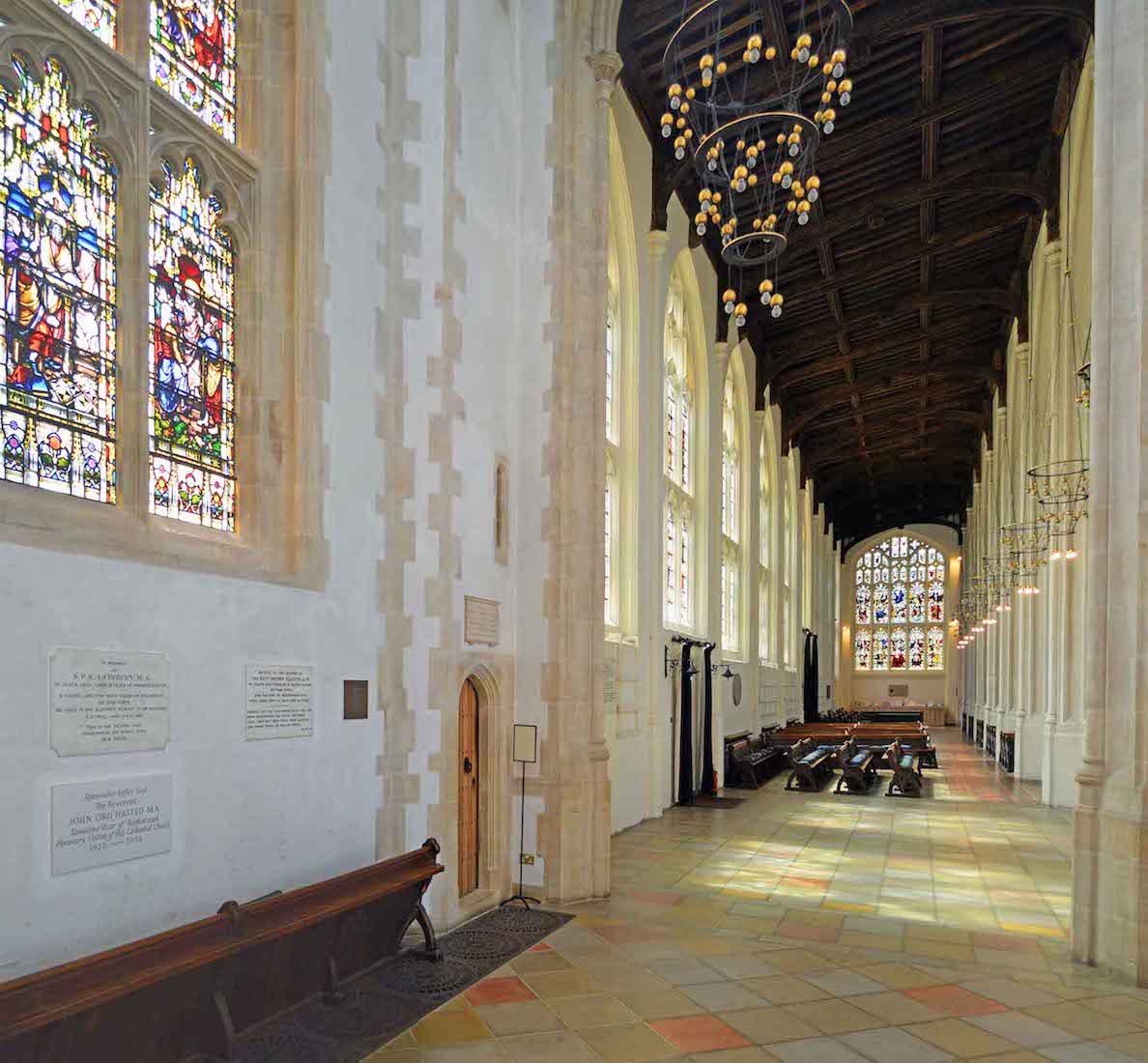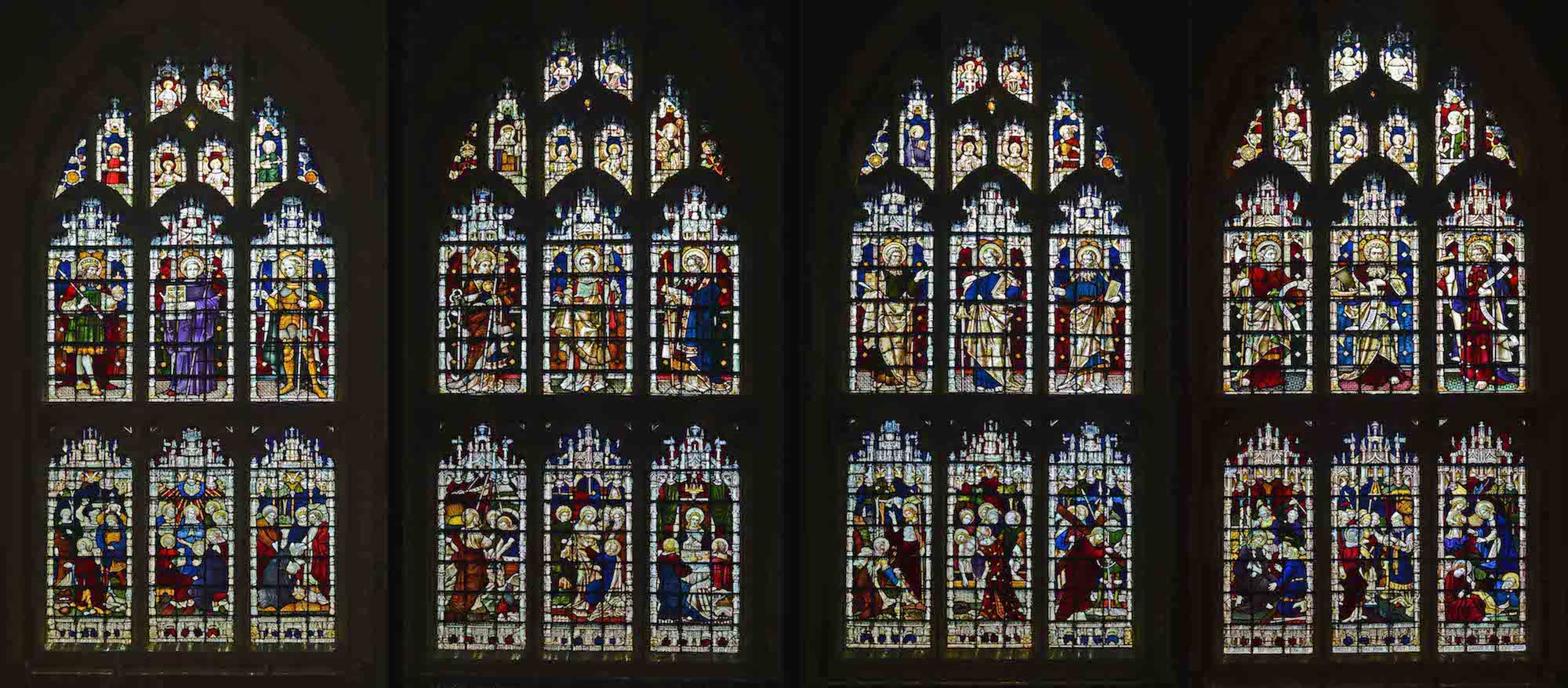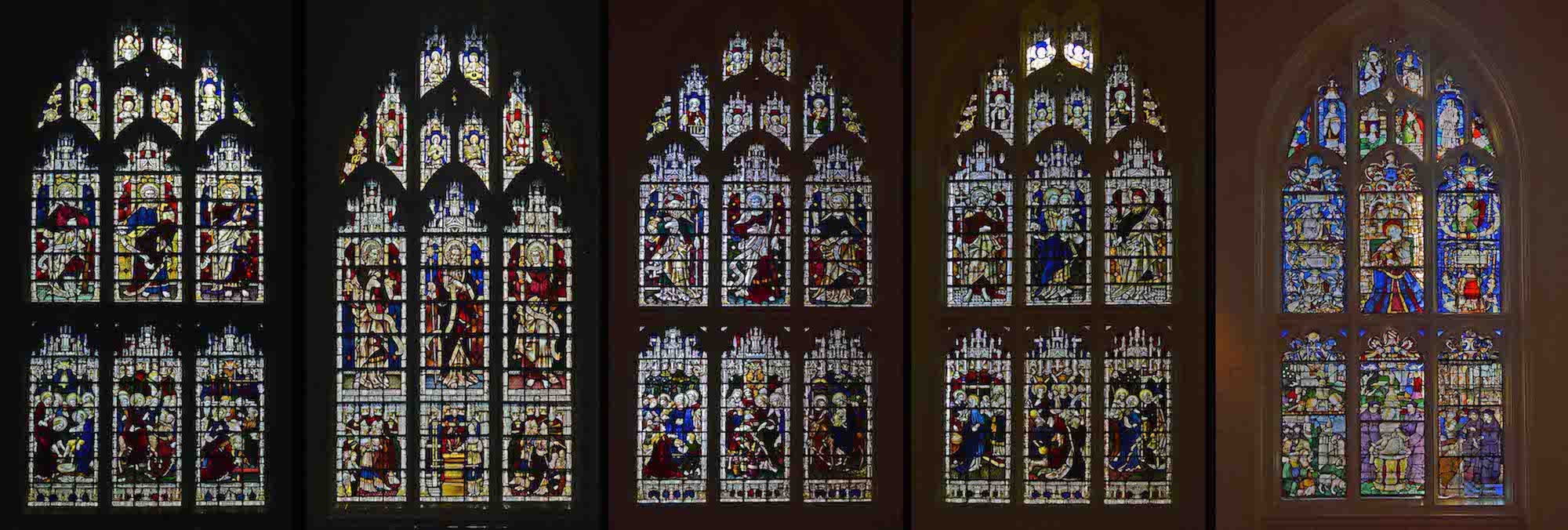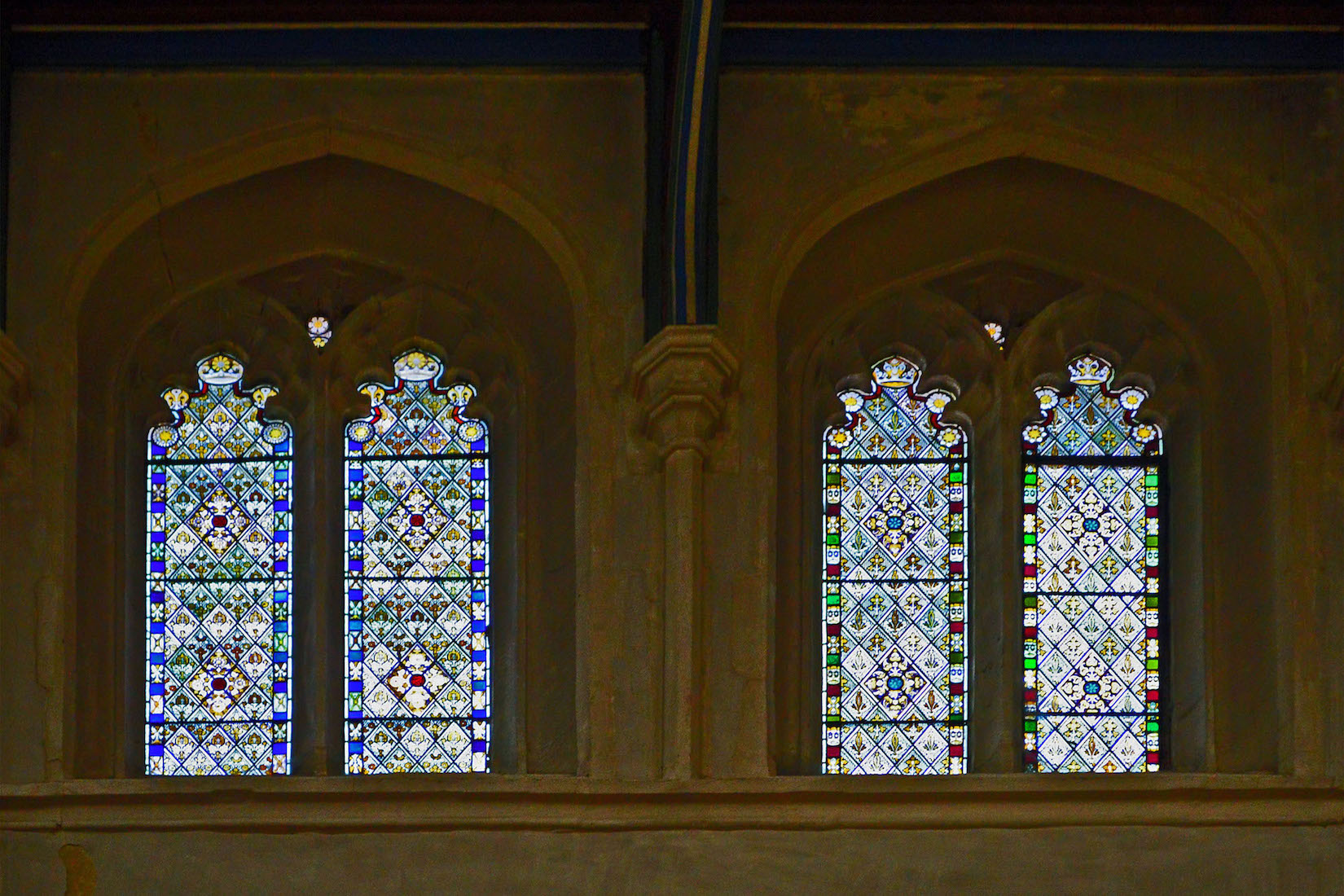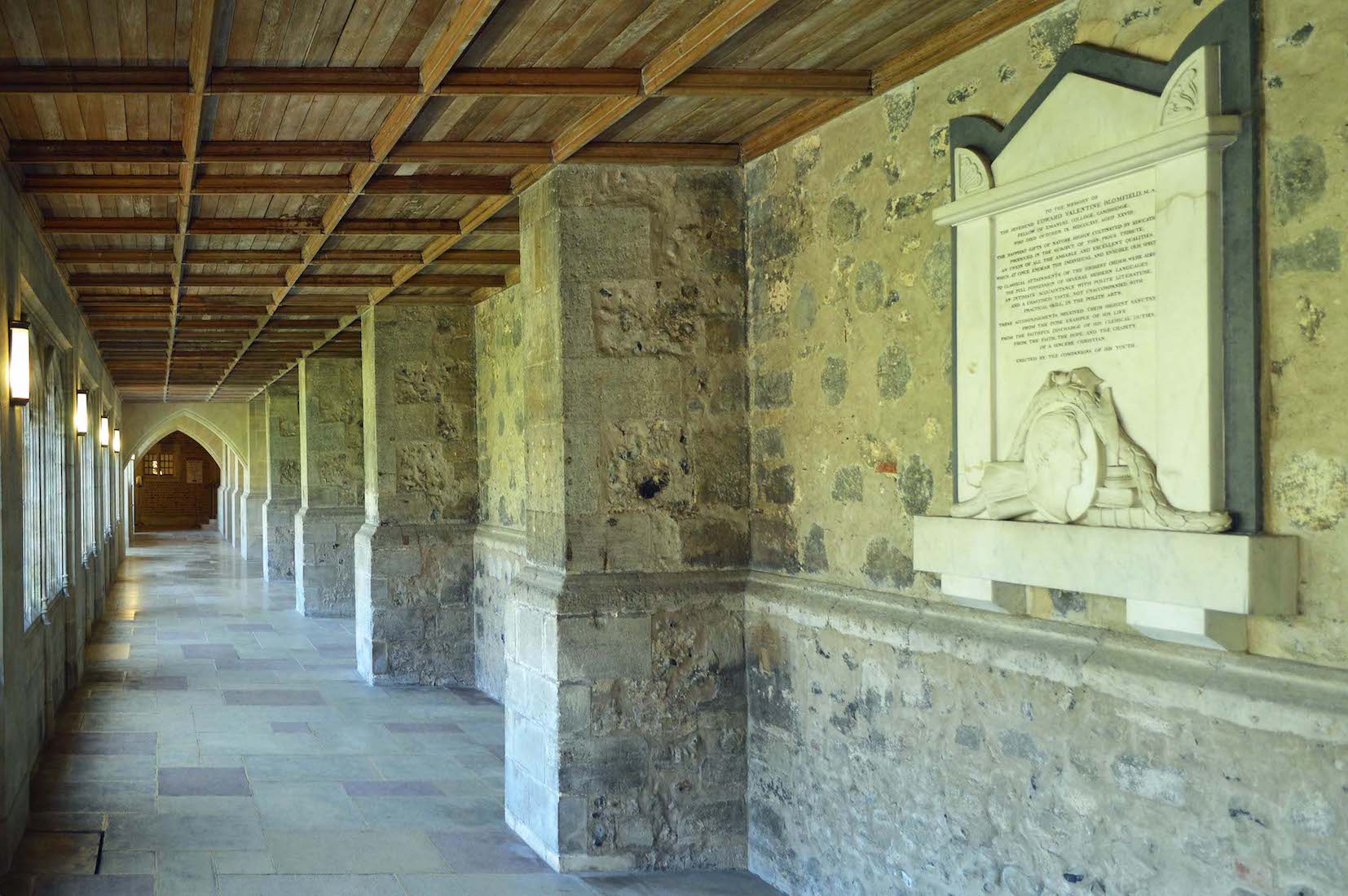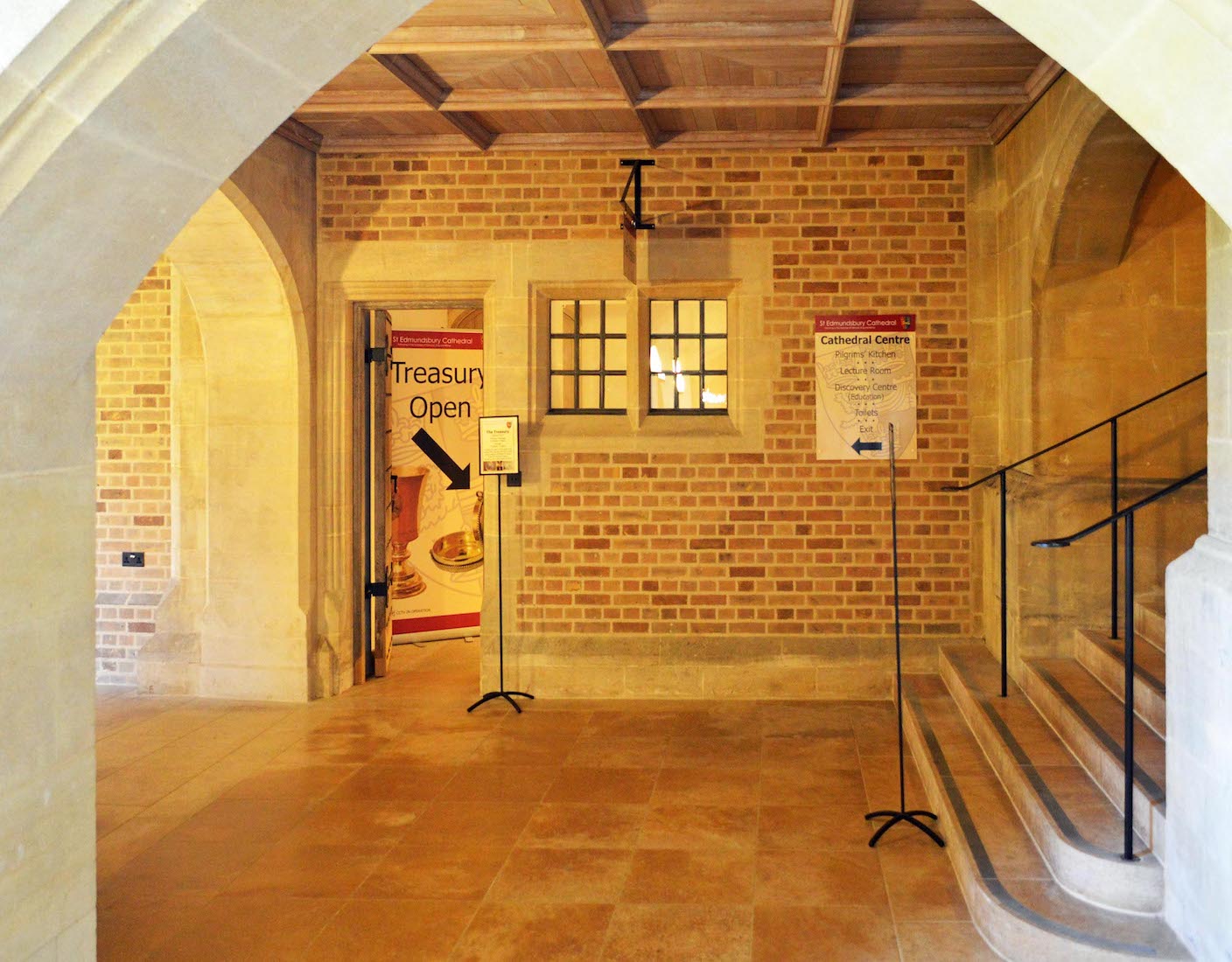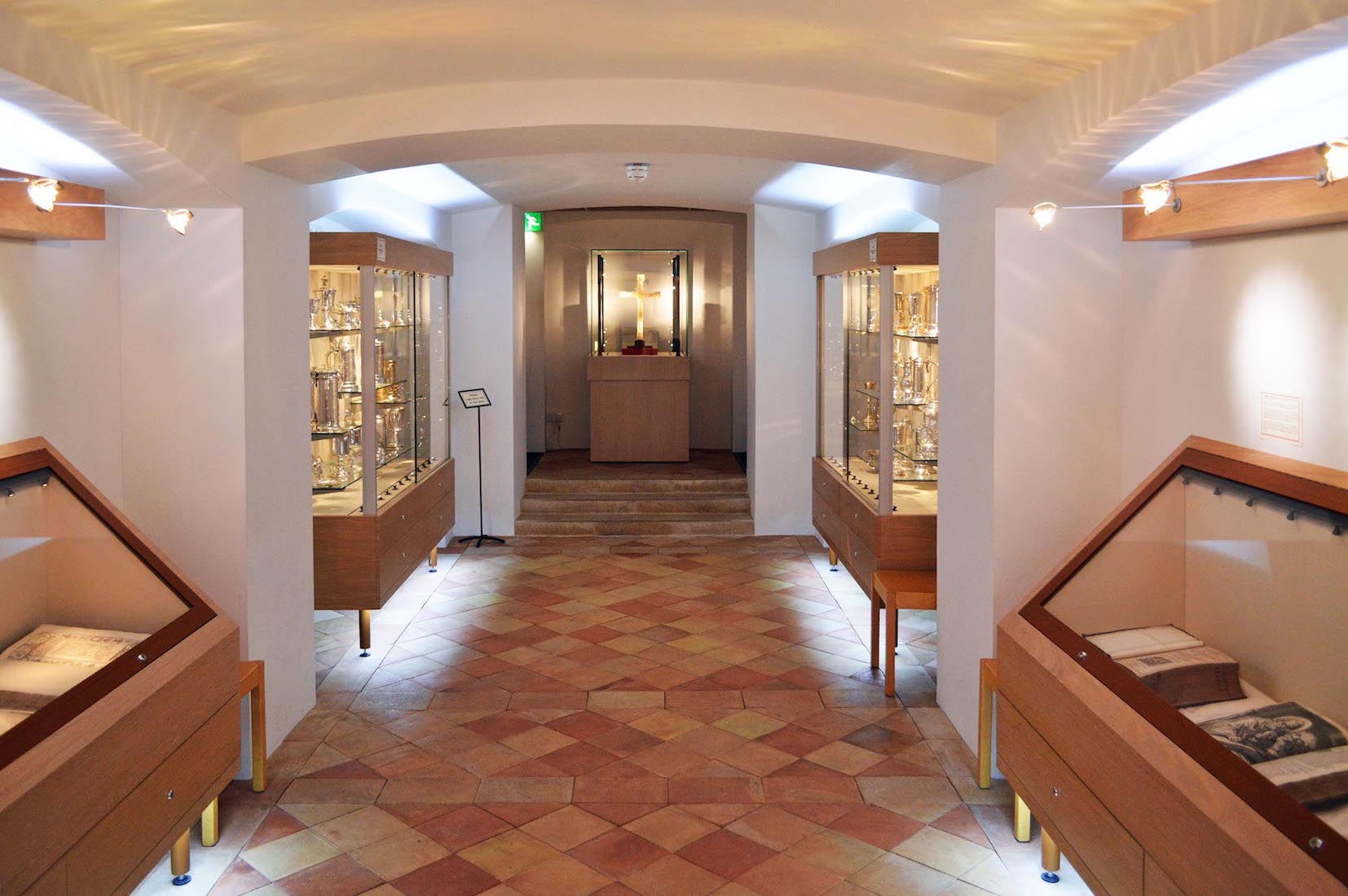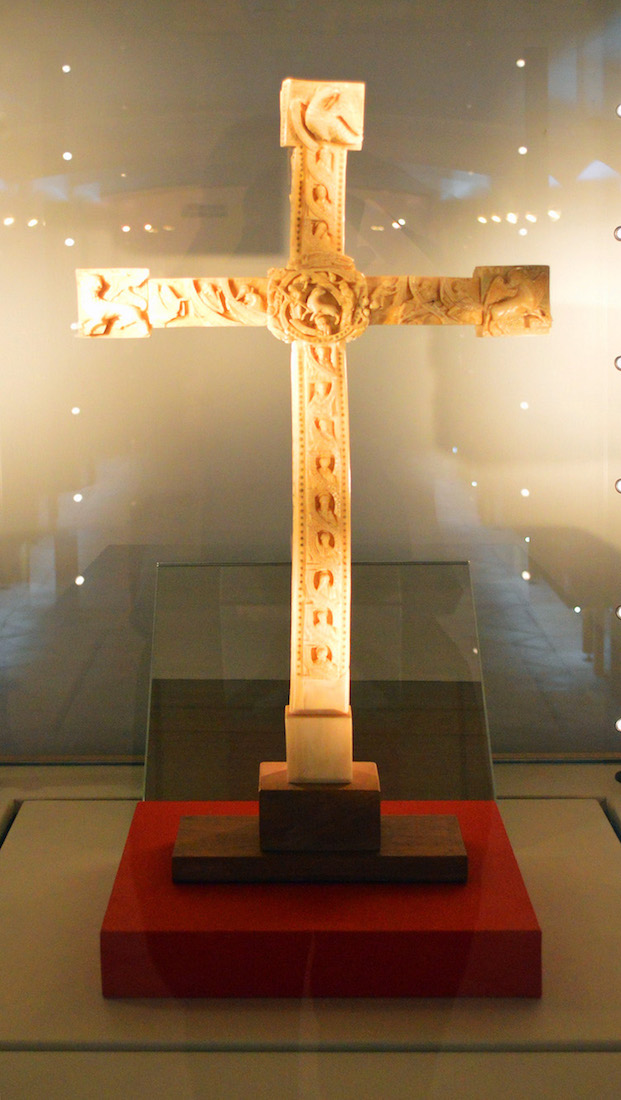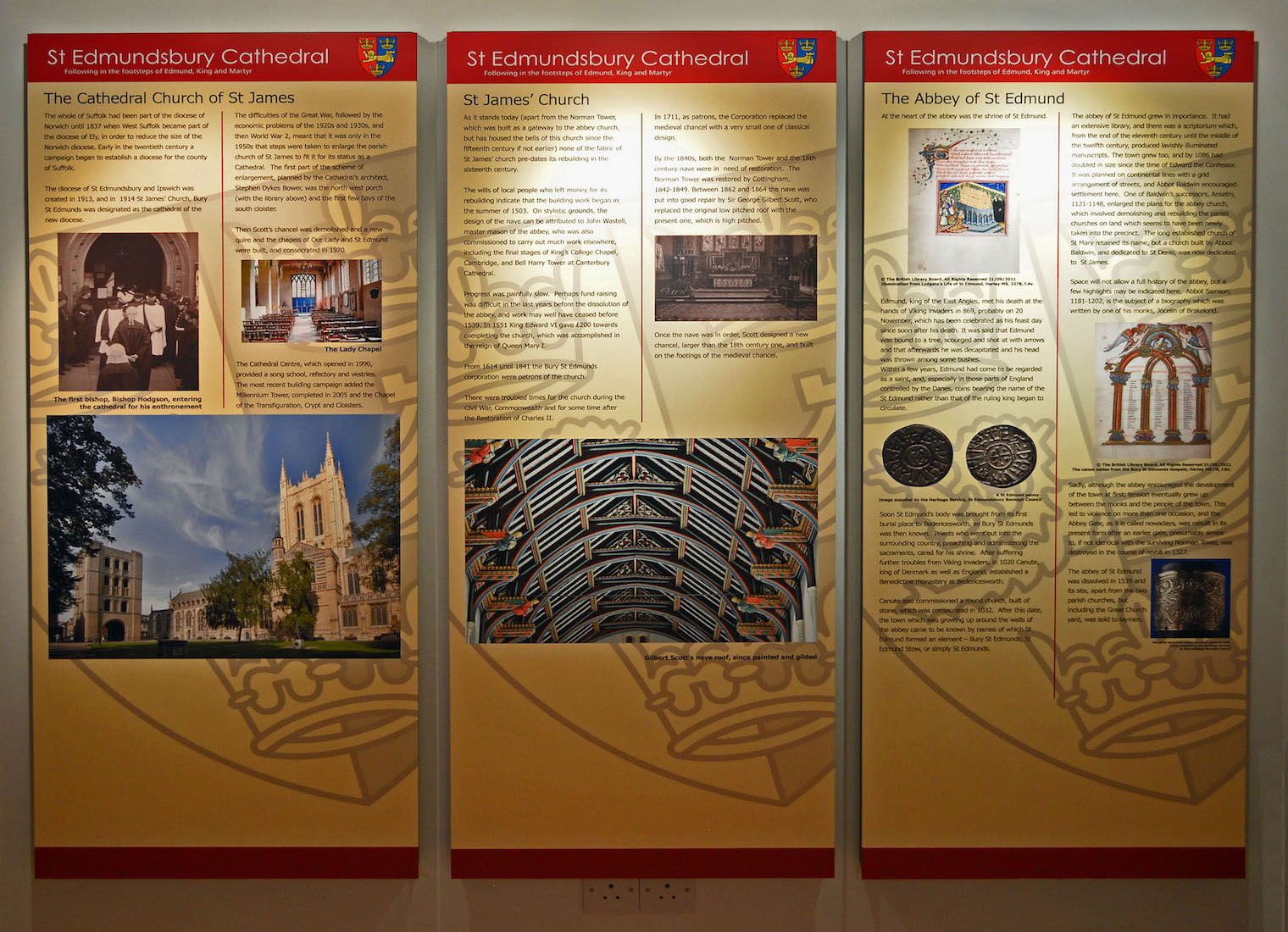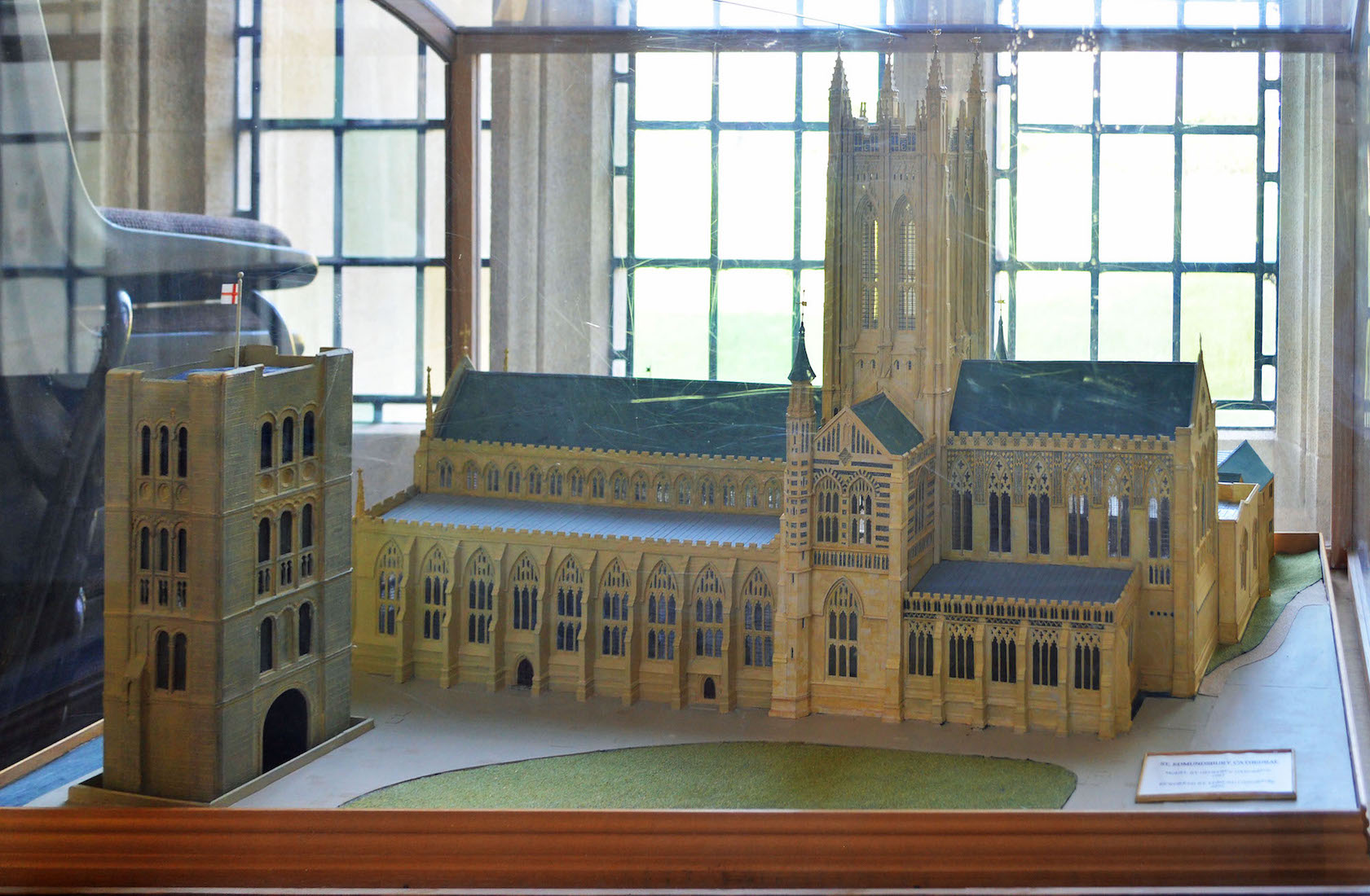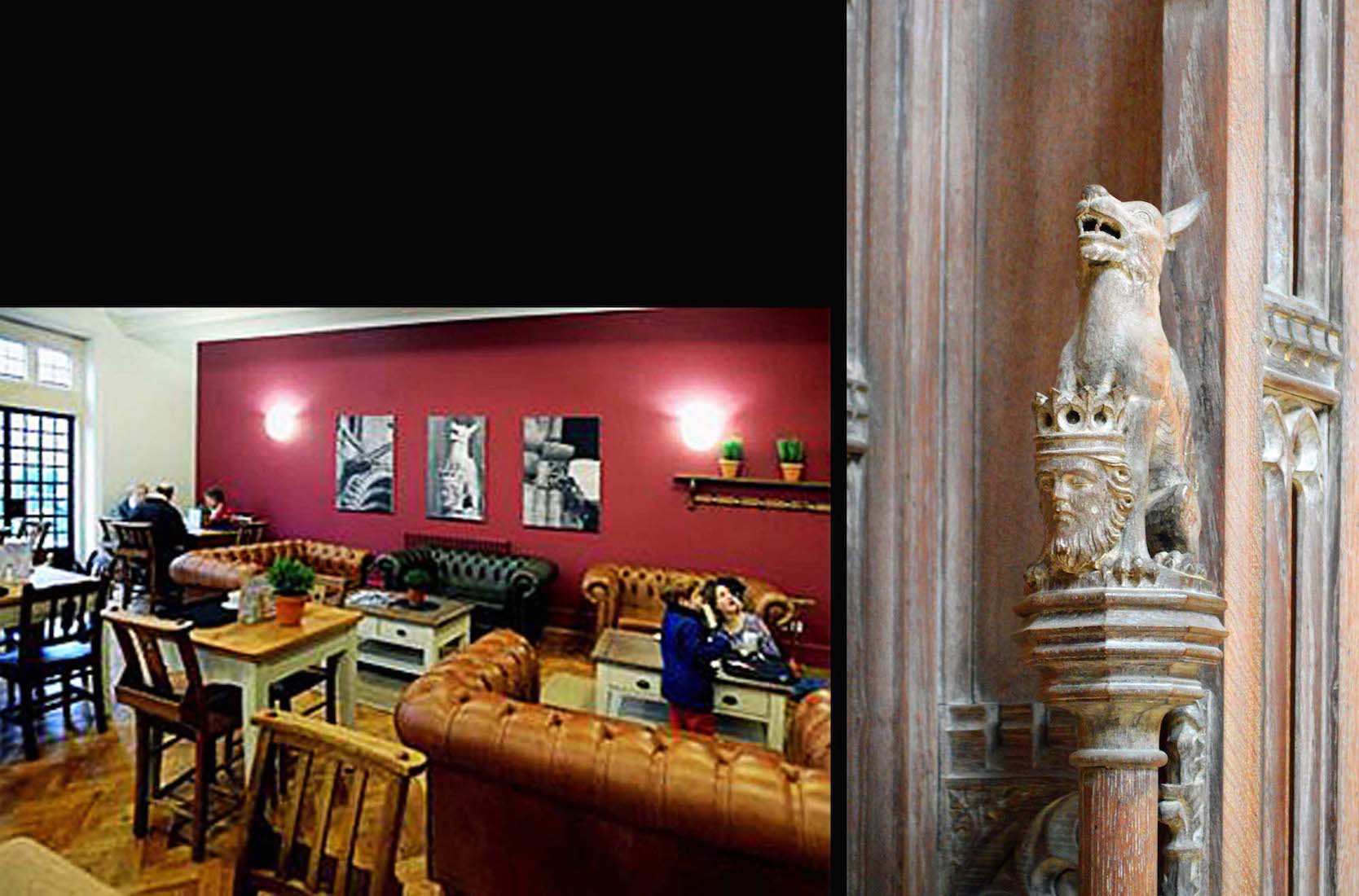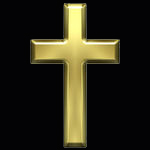62. MOTHERS’ UNION BANNER
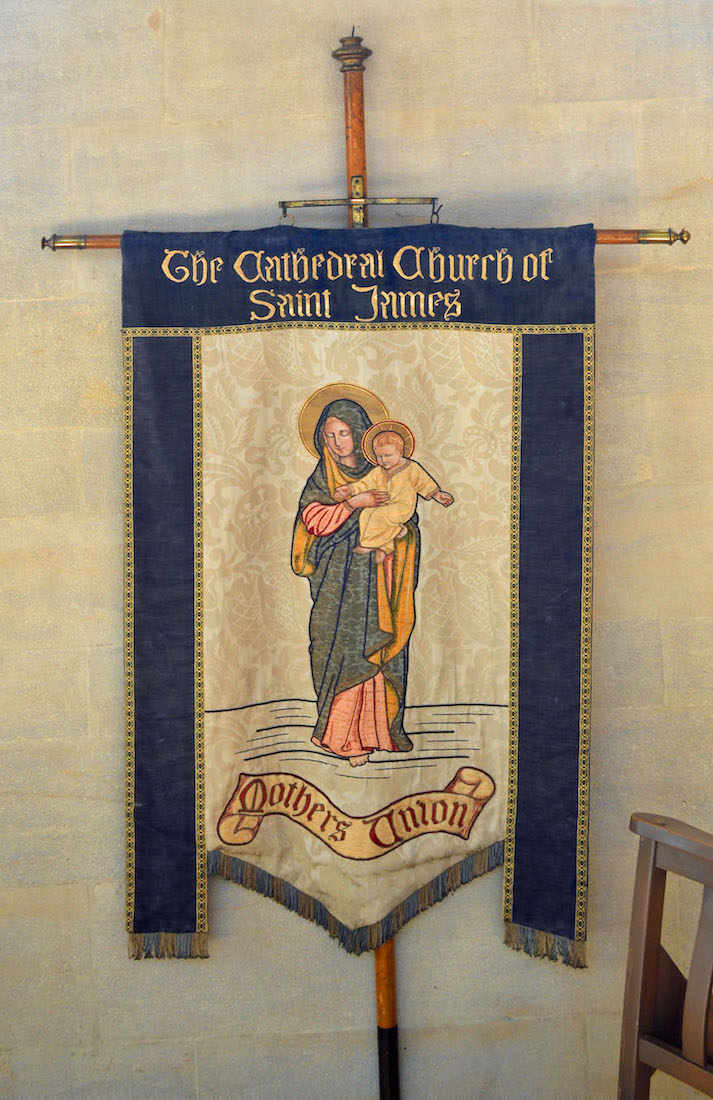
Members of the Mothers’ Union throughout the diocese contributed to the furnishings of the Lady Chapel, so it is appropriate that their banner be displayed here. The banner depicts Mary and the baby Jesus, and carries the title ‘Cathedral Church of St James’ across the top.
64. SOUTH NAVE AISLE
This is a view of the South nave aisle looking to the West. The South transept window is to our immediate left. While the transepts are obvious from outside the Cathedral, their impact inside is rather muted with their inclusion in the side aisles.
65. SOUTH AISLE WINDOWS, EAST
Illustrating scenes from the New Testament, the windows along the south aisle were positioned on the sunny side of the Cathedral. Among these windows, the upper lights contain the figures of apostles and saints, including St James and St Edmund. The lower lights contain episodes from the life of Christ, including the call of the disciples, Jesus healing the sick, and the events of the Passion.
66. SOUTH AISLE WINDOWS, WEST
In this set, the top lights show various disciples (Peter is obvious), the Madonna and child, and Joseph. The scenes in the lower lights include Jesus washing the feet of his disciples, entering Jerusalem on a donkey, feeding the five thousand, the wedding at Cana, and the escape into Egypt. The window at right has much older glass, possibly French or Flemish, and tells the story of ‘Susanna and the Elders’ from the Apocrypha.
67. NAVE CLERESTORY WINDOWS
These high windows in the nave are delicately patterned so that they give good light through to the interior of the nave.
68. SOUTH WALKWAY OF CLOISTERS
At ground level on the North side of the Cathedral is a modern cloister. Eight bays of this were built in the first phase of construction. Later the cloister was lengthened, and extended across the front of the Cathedral Centre, giving covered access to the Refectory. This view is along the North nave wall, passing under the North transept at the far end.
69. TREASURY ENTRANCE
At the Southeast corner of the cloisters there is the bottom of the stairway leading up to the main body of the Cathedral, and a doorway through to the Cathedral Treasury.
70. TREASURY
The Treasury is new, and very nicely finished. It contains old ecclesiastical books and parchments, and an exhibition of plates and chalices which have historic connection to the Cathedral and churches of the diocese.
71. TREASURY CROSS
A special display in the Treasury is this carved Cross. The Treasury hosts various exhibitions, so the treasures to be seen vary from time to time.
72. HISTORY CHART
Also on show here are these three historic panels, giving some insights into the Cathedral, the previous St James’ Church, and the old Abbey.
73. CLOISTER VIEWS
If we stand back against the wall surrounding the cloister lawns, we can get an overall view of the Cathedral and the cloisters in particular. We notice a labyrinth marked in the cloister lawn: a pathway which pilgrims can follow while meditating.
74. MODEL CATHEDRAL
We decide to complete our tour of the Cathedral by heading for the Refectory, and some well-deserved sustenance! Near the Refectory we find this model of the Cathedral. Many cathedrals have such a model – sometimes even made of matchsticks! The model is a good means of understanding the overall structure of the Cathedral.
75. THE REFECTORY
Our final stop. Here are some interesting photographs on the wall, including a photograph of King Edmund’s head being guarded by a wolf. There is a legend that after Edmund was decapitated his head was thrown into a wood. Villagers later found it being guarded by a wolf. This image can also be seen on the cathedra. This completes our tour of St Edmundsbury Cathedral. (Return to #12.)
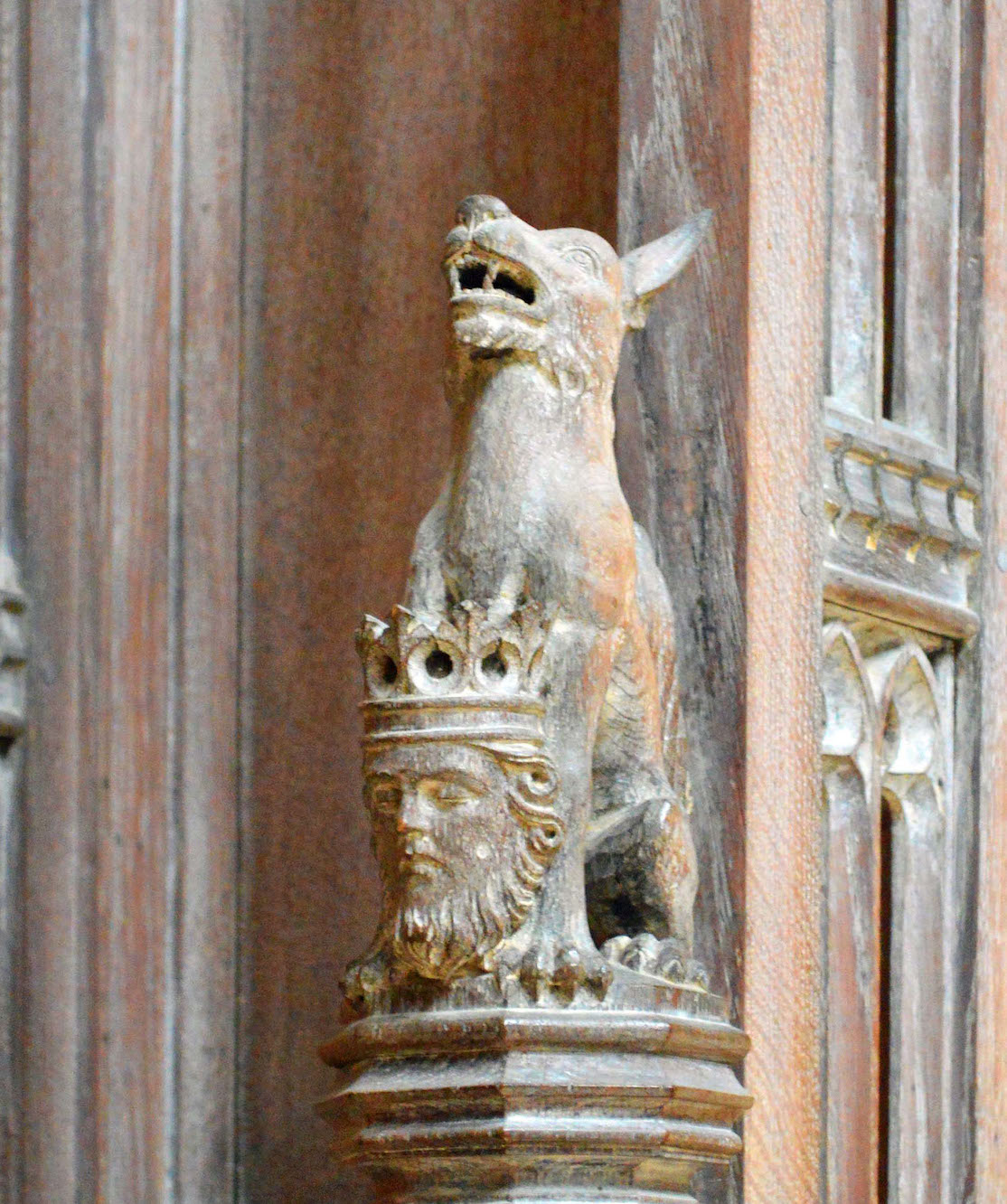
CONCLUSION
II hope you have enjoyed visiting St Edmundsbury Cathedral with me. We really enjoyed our visit here, finding much of interest and beauty.
I am happy to receive constructive comments or corrections concerning this website. The best websites are the ones which have no errors! I am grateful to my wife Margie who came with me, and who has proof-read these pages.
The Cathedral has an interesting website, and some of the textual information about the Cathedral on my site has come from there. I am happy to acknowledge this source. The link for the Cathedral website is:
http://www.stedscathedral.co.uk/
Othere text sources are the ever-helpful Wikipedia, and the Cathedral publications ‘St Edmundsbury Cathedral’ and the Welcome pamphlet. My photographs which appear on this site can also be found in higher resolution at:
https://www.flickr.com/photos/paulscottinfo/sets/
Paul Scott Site created 08 / 2016 Reformatted 06 / 2019 and again in 05 / 2020.


